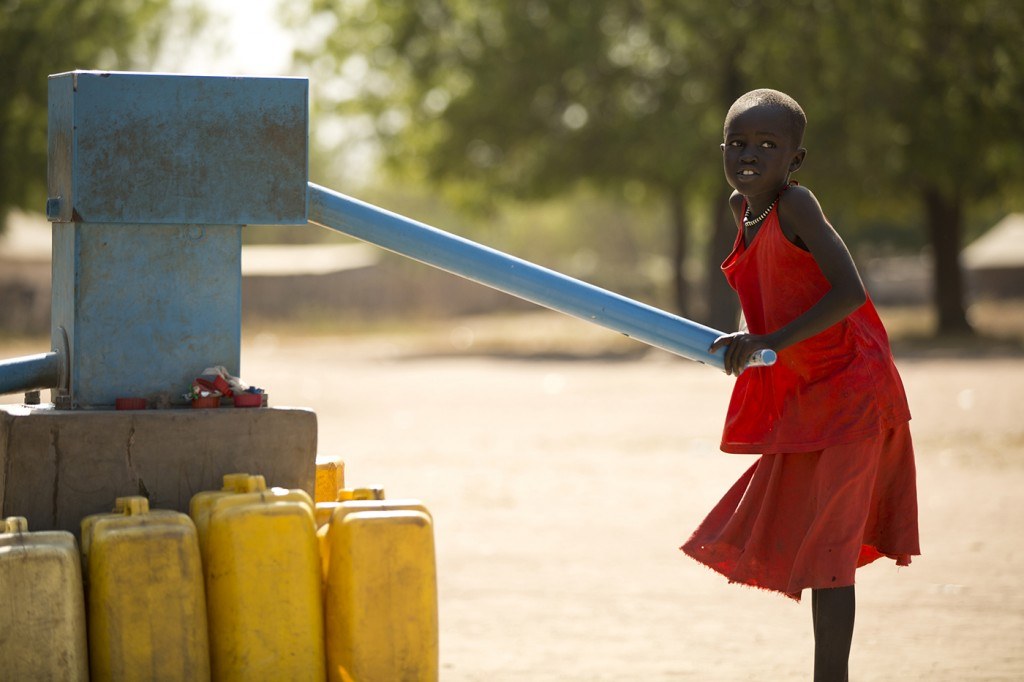The Blue Pump
Of the 500,000 Internally Displaced People in South Sudan who had to flee their homes because of the nation’s political crisis, an estimated 130,000 have sought refuge in arid Minkamman, Awerial County. Our last post details the horrific and dangerous trip these hundreds of thousands have had to make in order to get to Minkamman. Cramming into swollen vessels by the hundreds, the IDP’s made the extremely risky journey across the Nile to escape Bor – hundreds never even made it to Minkamman, dying as a result of drowning, a stray bullet or resource scarcity on the way.
After already enduring this unimaginably terrifying journey, they arrived in Awerial County only to be limited to dangerously unclean water from the Nile. The water shelves are extremely deep in this area of South Sudan, and while there are older pumps remaining in the area, many don’t work or can’t reach the depth of the water shelves.
Thousands are dying as a result of this water crisis in Minkamman – water is right under their feet, but they just can’t reach it.
That’s why the Obakki Foundation is on the ground right now, using groundbreaking Dutch BluePumps to create clean water solutions that address these extremely urgent needs while also creating sustainable access points for years to come. BluePumps are able to delve into extreme depths, accessing water shelves that other pumps would not be able to reach. What’s more, BluePumps have less movable parts (making them more durable and less repair-intensive) and are therefore far more sustainable.

We are one of the only organizations in South Sudan who use BluePumps and have specially trained our local South Sudanese staff in BluePump installation.
Using these innovative pumps, we are able to rehabilitate old hand pumps with new BluePump technology to create new water access points for these thousands of Internally Displaced People in need. While conflict has forced them from their homes and resources are scarce, creating these BluePump access points will give thousands the water they need now and for the future, giving them the foundation they need to survive.
Because our team is local, we have been able to respond to UN requests to mobilize our South Sudanese staff immediately.